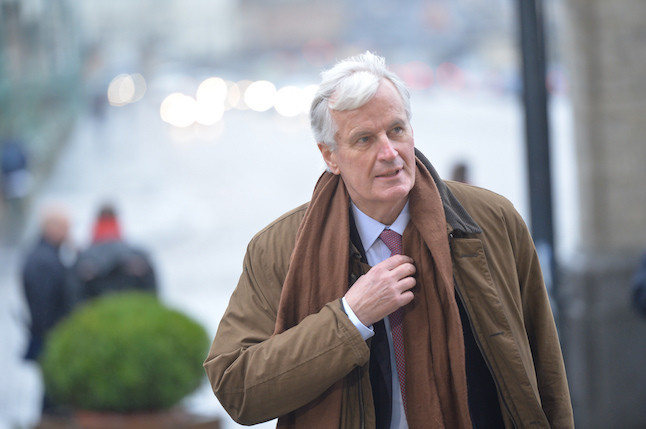The uncertainty prevailing around the consequences of Brexit meant that it was not business as usual. Economic and social actors needed to prepare. Barnier reiterated three principles on which the EU was building its position:
1) “The free movement of persons, goods, services and capital are indivisible. We cannot let the single market unravel.
2)There can be no sector by sector participation in the single market: you cannot leave the single market and then opt-in to those sectors you like most – say, the automobile industry or financial services. You cannot be half-in and half-out of the single market.
3) The EU must maintain full sovereignty for deciding regulations: the EU is not only a big marketplace. It is also an economic and social community where we adopt common standards. All third countries must respect our autonomy to set rules and standards. And I say this at the moment when the UK has decided to leave this community and become a third country.”
Barnier said that while the European council and parliament had made these points very clear, they had still not been fully understood by the UK government.
“Leaving has consequences”
These negotiations were “the direct result of choices made by the UK”--they were not an act of revenge by the EU, said Barnier. However, leaving the EU has some costs, and UK businesses should be lucid about factoring in those costs.
Barnier said his job was to limit the cost of Brexit for the EU27 member states to the best possible extent. Some sectors would be more affected than others. Barnier asked the EESC to prepare businesses, trade unions and people for any Brexit costs. “The UK will not have the same rights as now, but that’s its choice, and the UK needs to realise that trade will never be as fluid as it is now.” The single market, with its harmonised rules and regulations, means that products can be sold without formalities. Members of the customs union do not have any customs controls.
However, the UK government had indicated that it wanted out of the single market and out of the customs union.
No deal
Barnier said he was ready for any situation. UK ministers had raised the possibility of having no deal. Barnier explained that in classic negotiations, no deal meant the status quo. However, with Brexit no deal meant a return to the distant past, back to WTO rules with 10% custom duties on automobiles, 19% on alcohol, 12% on lamb and fish. No deal meant cumbersome procedures. It harmed businesses for just in time management.
He insisted that “no deal worsens the lose-lose situation”, but that the UK was likely to lose more. He added that there was “no reasonable justification for no deal,” and that a “fair deal is better than no deal.”
“I have to work with what the UK says it wants”
Barnier had asked David Davis, UK Brexit minister, whether he wanted to leave the EU, the single market and the customs union. Davis apparently replied yes to all three. He said he had to work with that position, and despite some issues being “extraordinarily complicated”, such as citizens’ rights and Northern Ireland, Barnier vowed to “reinject certainty without drama.”
He assured the members of the EESC that he was not intending to be harsh, but fair. It was about people; it was fair to protect their rights in the framework of EU law as long as the transition period went on. He admitted, however, that the Uk's opinions diverged on this, but insisted on the principle of reciprocity.
Financial services
“As the UK leaves the single market, all financial institutions must lose passporting rights,” Barnier said. “There is no negotiation on that.”
He added carefully: “everything else must be studied in very great detail.” However, his goal in these negotiations was to ensure EU financial stability: he had not forgotten, he said, the irresponsible and scandalous behaviour of certain bankers who thought everything goes during 2010, 2011. “We had to piece it back together,” Barnier said in reference to the 29 adopted proposals over 5 years to stabilise the system.
Free trade agreement
The EU had around 30 free trade agreements (FTA) with 60 countries. A FTA was usually a regulatory convergence process, but with the UK it was the opposite because it was already fully integrated. Barnier warned that now divergence would be automatic and wondered if it would be reasonable or whether it would, over time, turn into social, tax, and environmental dumping. He insisted that he did not ask these questions to be difficult, but that the EU needed answers, and that secret negotiations were impossible.
UK backpedalling?
Barnier explained he had “to work with what the UK tells me now.” However, different models were available, taking Norway or Turkey as examples. They all “strike a different balance” and “are all on the table.”
However, Barnier repeated his mandate again: “no cherry picking.” He added that this transition will be difficult and that whatever the nature and duration of the transition period, the ECJ’s role will be maintained.
